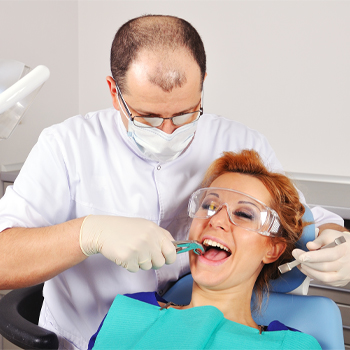Gentle, precision tooth removal, The first step toward a healthy mouth and confident smile
As our name suggests, dental extractions are just the first step in your journey and partnership with My Dental and Implants in Glendale, Arizona. Accordingly, removing a tooth is the start of a healthy process of restoring and sustaining the oral tissues that support everyday function, an attractive smile, and overall wellbeing. After all, a complete and healthy smile breeds self-confidence and promotes a healthy, well-rounded diet. Many of the functions that are necessary for your overall health and wellness start in the mouth!
There is one notable exception to the rule that teeth must be replaced promptly with modern options like dental implants: wisdom teeth!
The trouble with “wisdom teeth”
Wisdom teeth are more accurately known as “third molars.” These are the last teeth to develop at the back of the mouth. They typically try to erupt or surface through the gums in patients’ late teen years to early adulthood (the 20s). They get their nickname because this is generally when individuals are transitioning from childhood to adulthood and “gaining wisdom.”
Complications are common. Patients often do not have enough room to accommodate third molars. In turn, they become trapped underneath the gums. As the wisdom teeth push up against the gums, this process can cause intense pressure. It can also damage the neighboring teeth and oral structures. Now, not all individuals have problems with these teeth. Some patients may fail to develop wisdom teeth period. Still, others may only contend with one or two such teeth. Our dentist, Dr. Nima Afzalian, must monitor how these teeth are developing – if they are developing at all. We can then recommend the removal of troublesome teeth before they cause pain and other potential complications associated with impaction.

When other teeth become damaged, every effort is first made to preserve the severely inflamed or deeply infected tooth with therapies such as nonsurgical root canal treatment. If a tooth cannot be saved in this manner or with other endodontic procedures, Dr. Afzalian will generally recommend its removal.
Teeth largely intact and visible above the gum line can be removed as simple extractions by rocking or loosening the tooth from its socket to lift it more easily. Teeth with additional complexities – are badly broken or cannot be easily accessed and removed, require surgical treatment. This form of extraction simply involves making an incision in the gums to reach the tooth (or parts of it). We use gentle and precision techniques and instruments to extract these teeth. Furthermore, we are happy to discuss anesthetic and sedative options to support utmost comfort and relaxation in the treatment chair.
Prompt tooth removal largely resolves pain and other disruptive symptoms of dental decay and disease. By promptly replacing the teeth, we also prevent complications such as the shifting of neighboring teeth toward the gap and the loss of bone in the jaw. Schedule your appointment at My Dental and Implants in Glendale, AZ, today. We can be reached at (623) 526-2330 or select the “request an appointment” tab on this website today.






